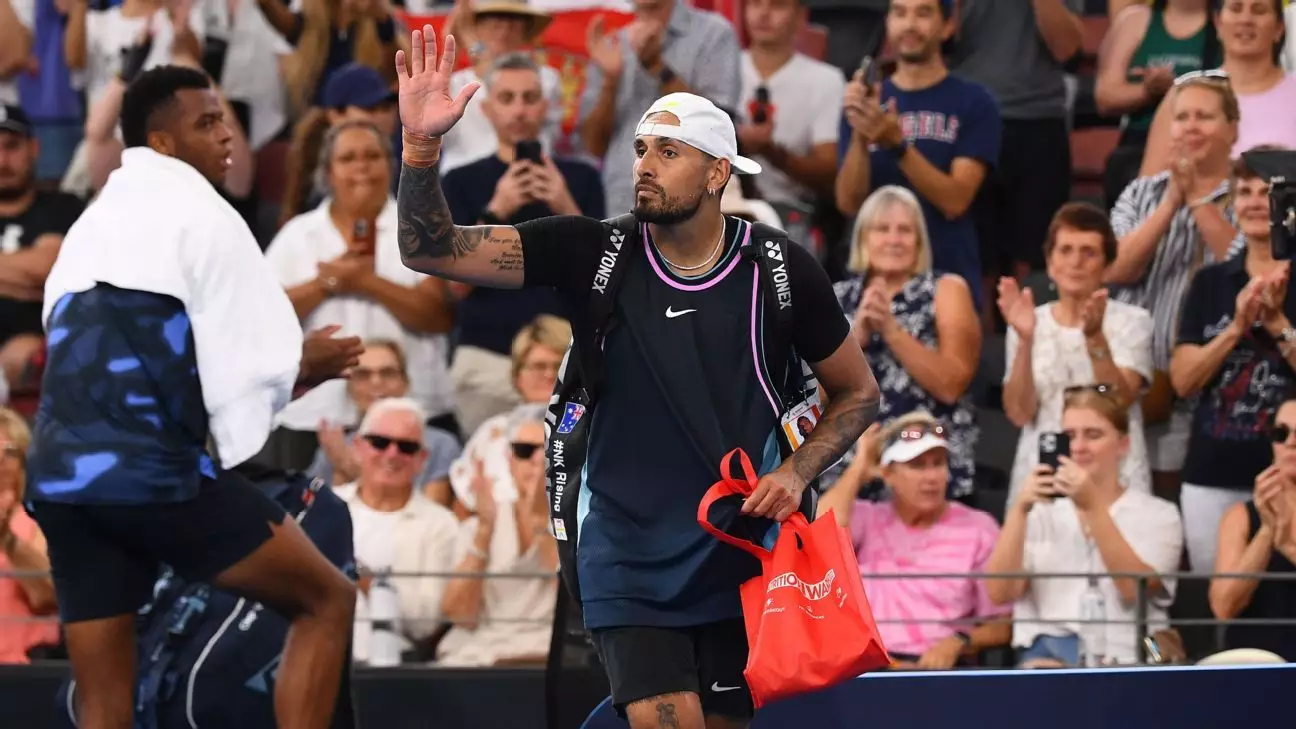In the sporting world, the journey of an athlete returning from injury is often fraught with challenges, as exemplified by Nick Kyrgios at the Brisbane International. After a lengthy 18-month hiatus from the professional circuit due to significant wrist and knee injuries, Kyrgios faced burgeoning young talent Giovanni Mpetshi Perricard. Despite not winning, Kyrgios demonstrated vital match fitness in their nail-biting encounter, lasting over two hours, which speaks volumes about his resilience in the face of adversity. The match, however, highlighted both his skills and shortcomings on the court, particularly against a player whose hard-serving paved the way for a surprising upset.
The thrice-played tiebreak score revealed not only the closeness of the match but also the competitive spirit ignited between the duo. Perricard’s ascension from being ranked outside the top 200 to No. 31 reflects his growing prowess, something Kyrgios knew he had to combat despite his own rhythm still being a work in progress. The absence of service breaks throughout the contest underscores both players’ serving strengths, though Kyrgios’s 15 aces paled in comparison to Perricard’s remarkable 36. The outcome might be disheartening for Kyrgios, but it showcases the gravity of competing against a rising star, and the necessity for him to acclimatize to match-play conditions again.
Conversing with Frustration
A poignant moment arose when Kyrgios expressed his frustration to the chair umpire after missing a golden opportunity to break during the pivotal second set. Such emotional exchanges are not uncommon in sports, where the mental aspect can significantly sway performance. His interactions underscore the intensity and pressure athletes must navigate, especially when striving to regain form against formidable opponents. These elements form a crucial part of athletic psychology, as addressing mental hurdles can be as vital as physical readiness.
The Broader Tournament Landscape
As Kyrgios fought valiantly, other tennis sensations, including Aryna Sabalenka, began to establish their dominance early in the tournament. Sharply dismissing Renata Zarazua in straight sets, Sabalenka exhibited her intention to reclaim a title she previously held, hinting at a robust Australian Open defense come January. Her quick triumph exemplifies an athlete ready to conquer any challenge ahead, setting a high standard for competitors. Sabalenka’s confident declaration that match play felt instinctive echoes the broader theme of readiness and form seen throughout the tournament.
The Brisbane International serves as a crucial primer not just for Kyrgios, but for many players gearing up for the Australian Open. As athletes like Djokovic and others navigate their early rounds, excitement builds for the high-stakes competition that lies ahead. The withdrawal of world No. 22 Sebastian Korda due to injury acts as a somber reminder of the unpredictable nature of sports, where fitness can be both an asset and a liability.
Kyrgios’ match stands as a testament to the grind of returning to top form and overcomes hurdles laid down by injuries. The talent showcased at this tournament will undoubtedly set the tone for another thrilling season ahead in tennis.


Leave a Reply